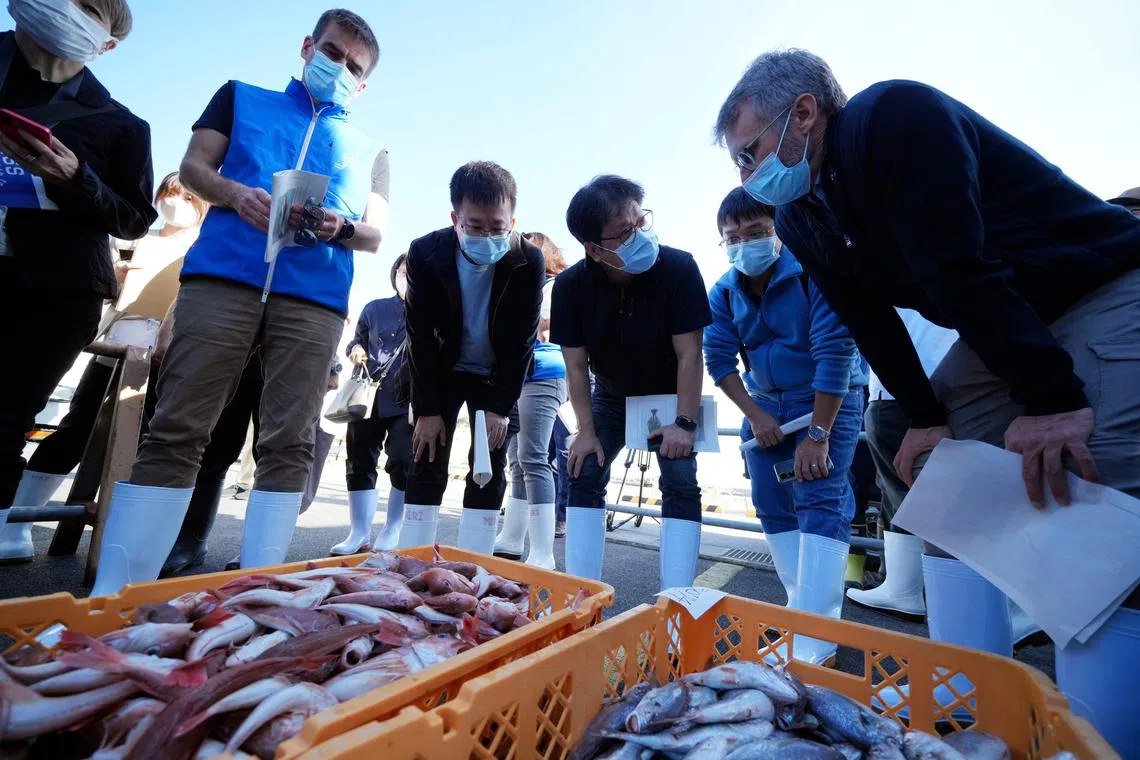UN inspectors test Fukushima fish after wastewater release in August
Sign up now: Get insights on Asia's fast-moving developments

IAEA inspectors with scientists from China, South Korea and Canada observing baskets of fish to be taken as samples at Hisanohama Port in Iwaki, on Oct 19, 2023.
PHOTO: AFP
IWAKI, Japan – United Nations inspectors took samples from a fish market near Japan’s Fukushima nuclear power plant
China and Russia have banned imports of Japanese seafood
Some 540 Olympic swimming pools worth of water have been collected since a tsunami sent three reactors at Fukushima-Daiichi into meltdown in 2011 in one of the world’s worst nuclear disasters.
Japan says that the water from the reactors has been filtered by its special ALPS technology of radioactive substances – except tritium – and diluted with seawater.
Tests have shown that tritium levels are within safe limits, Japan adds.
The IAEA team – comprising scientists from China, South Korea and Canada – was collecting fish, water and sediment samples this week to verify Japan’s findings.
Mr Paul McGinnity, a member of the mission, told reporters that the aim was “to ascertain whether the Japanese labs are measuring and analysing properly” tritium levels.
“Tritium is the concern because tritium levels, as you know, are relatively high because it is not removed by the ALPS process,” Mr McGinnity said.
“I can say that we don’t expect to see any change (in tritium levels), certainly in the fish. We do expect to see a small rise in levels of tritium in seawater samples very close to the discharge point. But otherwise we don’t. We expect to find levels that are very similar to what we measured last year.”
Samples will be sent back to labs in the team members’ home countries for independent review, and the IAEA will evaluate and publish those results.
Russia this week followed its ally China in banning Japanese seafood imports, although it buys relatively small volumes.
Japan, which has called China’s ban politically motivated, said Moscow’s move was an “unjust” step “without any scientific basis”.
The treated water release is aimed at making space to begin removing the highly dangerous radioactive fuel and rubble from the wrecked reactors. AFP


